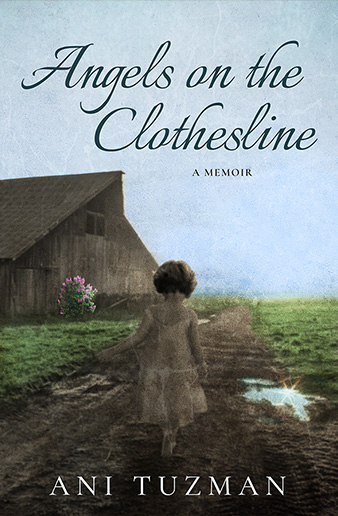Many of us have had teachers or mentors along the way who have blessed our journeys . I find myself inspired to write about one of mine today.
I was eleven, a student in a yeshiva, a parochial Hebrew day school. He was in his thirties perhaps, although if you had asked me then how old he was, I might have just said kind of old like my parents. I was a transplant from a rural public school, where as a Jew I was unwelcome—to put it mildly—the principal having told my father that I was not wanted in that school, that Hitler should have finished all the Jews off. (But that’s another story.)
It was sixth grade and I couldn’t have been a happier transplant despite the hour and a half of travel in the school’s single bus each way, leaving home at 6:30 AM and returning at 5:30 or 6 at night. We had a half day of Hebrew studies, followed by a half day of secular studies. Rabbi Mitnick was my teacher for both.
Rabbi Mitnick had a full, dark beard. He wore white shirts and a black tie that he loosened as the heat built in his body from the zeal that would overtake him as he taught us.
He would chose a line of Torah—but most often just a single word—and turn it before our eyes like a multi-faceted gem. Revealing us to the “secret root” of the word, he would write it on the blackboard, surrounded by other words with that same root. Then he would pick up one of the Five Books of Moses and search for the appearances of these words, finding them with the joy of a child discovering hidden candy. He exclaimed over their different meanings, their nuances, as if the words were bathed in varying hues of light, and he wanted nothing more than that we see those brilliant colors.
Rabbi Mitnick would become so enthralled as he taught us, that the next thing we knew he was on top of his desk, having leapt from floor to chair to desk.
There he would stomp his worn shoes with each excited point he made, like a tap dancer on the stage of his desk. But Rabbi Mitnick was not performing. He had abandoned himself unselfconsciously to the ecstasy of study, to the bliss of discovery.
And he took me with him.
I could practically taste the words we were examining. I, too, became a playful, holy detective, following Rabbi Mitnick through the thickets of passages. There was not a dull moment in that classroom as I stared up at my teacher atop his desk, his eyes burning with joy as he pointed to a line of text in a book infinite with possibility, paths, and revelation.
Rabbi Mitnick’s eyes would often become moist with tears. He would be suddenly unable to speak, stopped in mid-sentence, in midair, by awe.
Sometimes, he would cry. Upon finding his voice again, he would lean his head back, look up, close his eyes, and whisper his gratitude to the Reboina Shel Olam, the Source of the Universe, for such wonders as cannot be fathomed.
Tears would fill my eyes as I gazed at him, wondering what next.
I did not want the morning to end.
We would start each morning with prayers. Girls on one side of the room, boys on the other, holding our thick Hebrew lined prayer books, we would rock back and forth, invoking the Presence and compassion of one with many names, some never to be pronounced as written. We prayed facing east, Rabbi Mitnick in front of the room, his back to us, vigorously rocking as he were motorized. The prayers were not to be said silently, but rather in a loud whisper, though some of us were too self-conscious to pray this way. Many faked it, turning the pages dutifully, a few not even looking at the words. Their lack of feeling was as tangible to me as Rabbi Mitnick’s devotion.
We said the same prayers daily, and there were days that my mind would also gloss over their words without taking any meaning from them. I hoped, for his sake, that Rabbi Mitnick would not become aware of our boredom. I thought that he would be so saddened by it. He seemed to swim in the prayer book, each day diving anew into an ocean filled with treasure, more to be found the deeper he dived.
Most of the time, Rabbi Mitnick’s absorption was contagious enough to lead me back into the prayers from my brief distraction. I would dwell on one word in a prayer, its root coming into focus, or feel in my belly the longing in a psalm, tears filling my eyes. There was no shame in tears to Rabbi Mitnick, I knew, but tears were certainly not the norm among my classmates. For many, the norm was indifference. Or worse.
M. the tallest of the girls and the only blond, liked to bow demonstratively during the Shmoneh Esreh, Prayer of the Eighteen Benedictions, rounding her shoulders emphatically, so we would see the buckle of her bra through her thin white blouse. It was the year that the girls would get bras one by one, whether they needed them or not (except for me; my mother did not believe in training bras). The aforementioned M. filled her tiny AA cups with paper towels that she seemed not to notice sticking out between the buttons of her blouse. I was embarrassed for her, more, I think than she was for herself.
But there was something that did embarrass her and others in the class.
One day, I noticed laughter behind or around me, a kind of tittering, I guess you could call it. I learned, hearing their whispers, that a number of my classmates were finding the deep wells of sweat darkening Rabbi Mitnick’s armpits and white shirt “disgusting.”
I had noticed the sweat, the wet shirt and armpits as Rabbi Mitnick raised his arms. To me it was just a sign of how enthused he had become, how heated up, how vigorous. I didn’t mind and I did not want them to laugh at him. I wanted to scream in fact, that they should stop, that they should be happy to have a teacher that climbed on his desk in his fervor. I wanted to tell them that we were so lucky! I did not want anything to change or quell our teacher’s enthusiasm. I hoped that Rabbi Mitnick would not notice their laughter and discomfort, or that if he did, he would think it had nothing to do with him. I decided to just keep my focus on my teacher, to listen so intently to the words he held up that all the other sounds in the classroom would fade.
I wanted only to learn to drink from the same deep cup of wonder that nourished my teacher, that made him wave his arms in awe. I wanted to lose myself in a word the way he could.
With Rabbi Mitnick as my guide and companion, I did lose myself, not wanting to be anywhere else but right there watching him laugh and cry, sweat and laugh more as he cried out in gratitude to the source of each holy letter—reminding us that we were each no less wondrous.
***
Teachers are everywhere. Maybe one of your teachers was a child, an animal, a tree… Is there a teacher in your life about whom or to whom—even if they are no longer alive—you might like to write? Find a few minutes and go for it. (It’s enough to write it just for you.)
G'Mar Chatima Tova
I close with this customary greeting whose literal meaning is: "a good final sealing." I will add to that: May you know the love of which you are made. What better than to know this?
With gratitude,
Ani
Your comments make this blog a conversation!
I would love to hear from you.
To avoid spam all comments are moderated by Ani. So if you don’t see your comment show up, not to worry; your comment will be up within within 24-48 hours





